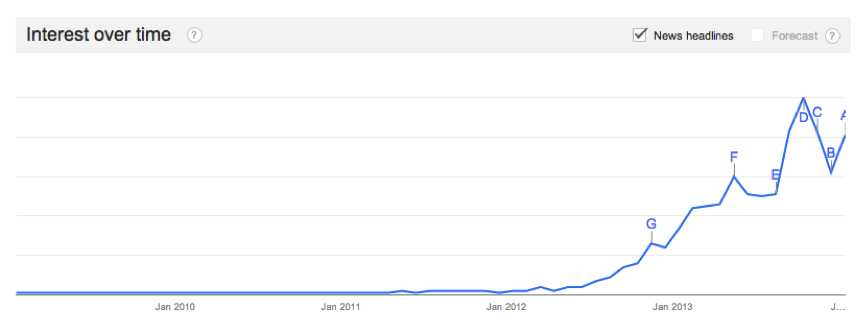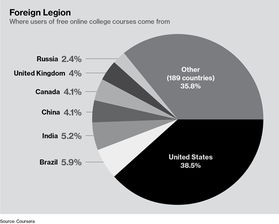
Enter Google Drive! Google was a bit late to the cloud storage party but they have entered with a bang. They have dramatically decreased the prices (making them currently the cheapest per GB offering) but the best part like Microsoft's OneDrive (formerly Skydrive) offering, is that they have cloud applications. This means in addition to your files be stored/synced/backed up online you can also create and edit these files. So for example you can use Google Document to collaboratively write a document or create or Google Spreadsheet to create a spreadsheet etc. This is really amazin as not only can you have multiple people working on the same file at the same time, you can present online, access and edit them from any device etc. So not ony are your files in the cloud but so is the ability to be able to use these files anywhere, anytime and on any device.
So, while I still believe that Dropbox is a better offering in terms of the sync side of the solution (at the moment), Google's offering is getting sweeter all the time. So this got me thinking as to how I could move all my Dropbox data across to Google Drive and use both - nothing like getting the best of both worlds!. So if I want to switch in the future to Google Drive all my files will already be there. Another benefit is that if something happens to my Dropbox account I will have a complete backup in Google Drive too! You can never be too safe when it comes to backup.
Originally I dragged my Dropbox folder into my Google Drive folder on my Mac and so this caused both Dropbox and Google Drive to sync everything. While this works the BIG downside of this is that it is a huge drain on your bandwidth as every time you add a file both Google and Dropbox are uploading it. This seems crazy, as essentially once it is in the cloud in Dropbox surely Google can get it from there with no upload drains on my computer?
Well, after doing some online research and looking at various options I came across CloudHQ who offer what I have found to be the easiest and cheapest of options. What I like about their offering is that you can very easily just drag and drop the services you want to sync (Google Drive, Dropbox, Evernote, and others) and then choose one-directional or two-directional sync, and you're done. There are a few authorisation (once off) steps you have to go through but it is literally a couple of minutes and then everything takes place in the cloud. So now I have set up my Dropbox to automatically be synced to my Google Drive account every time I make a change. The big plus is it now all takes place in the cloud whether my computer is on/connected or not.
There is no doubt in my mind that the cloud is the way of the future. It is becoming a fundamental part of our lives as we move more of our data into the cloud so we can access it easily from most devices. Being able to now sync between cloud providers is really great because it minimises one of the big risks/concerns of the cloud - being tied into one provider. Now you can have the best of accessibilty and reliability.
Try CloudHQ for free for 14 days to see how it works and check out the video below if you want to see more.







 RSS Feed
RSS Feed